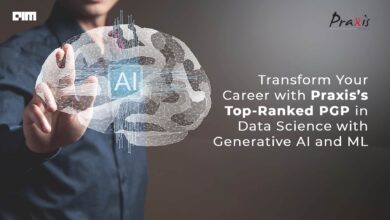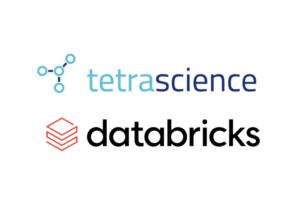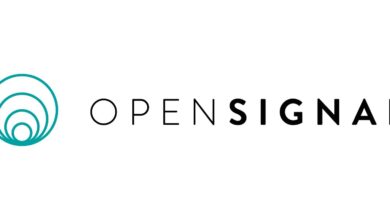Free Data Science Courses Offered by Harvard

As one travels the vast expanse of Free Data Science Courses at Harvard, one learns how to study statistics and make predictions using R as their tool. Such lessons provide an alternative educational route that targets individuals at different levels in terms of prior experience with statistical material or even general knowledge about data science. Hence, in this article, we will guide you through the free Data Science courses by Harvard that you can enroll in.
Data Science
Course description
This is self-paced and among the free Data Science courses. This course will teach sampling, estimation, and hypothesis testing, which are critical in data affected by chance and, as such, are fundamental in data analysis for data scientists. These ideas/ concepts will be taught through a compelling example of using models in election forecasting in this course. In this course, you will see how inference and modeling can be used to construct the statistical methods that enable polls to work as a predictor, and we will demonstrate this to you using R. The tools that make polls work will be taught to you, including the concepts for defining estimates and margin of errors so that you can make relatively good predictions and define how good your forecast is likely to be. Once you learn this you will be able to understand two concepts that are ubiquitous in data science: The confidence intervals, as well as p-values are used in this article. And then, to be able to evaluate certain statements on the probability of a candidate to win, there is Bayesian modeling. Lastly, at the end of the course, there will be a recap on your learnings. Apply here
Data Science: Productivity Tools
Course description
Quite often, a data analysis project has a few subsections or sections; each subsection or section consists of multiple data files, which may be analyzed with the help of multiple scripts containing relevant code. Everyone can agree that keeping everything arranged can be daunting.
This is among the free Data Science courses by Harvard forming a part of Harvard’s Professional Certificate Program in Data Science and focuses on how to use Unix/Linux, a tool used to manage files as well as file directories on your computer, and ways of ensuring that the file system is properly arranged. Next, commit tracking system you are to learn about git, which is an efficient tool for tracking the changes made in your scripts and reports. We also recommend that you familiarize yourself with GitHub as an example of a work-in-progress repository and show how you can encode your work with its help.
So, eventually, you will be able to write reports in R markdown, which allows combining text and code into a document. We will review all that using the integrated desktop environment that is popular amongst data scientists, IDE RStudio.
Data Science: Linear Regression
Course description
Linear regression has widely been used to establish the correlation between two or more variables. It also helps control factors that may distort the results of the study, which are known as confounding factors. This is among the free data science courses by Harvard that can be enrolled and studied. This course forms part of our Professional Certificate Program in Data Science and aims to explain how to Practice Linear Regression and Adjust for confounding in R.
In data science, it is always essential to look at the correlation between two or more variables which is the main focus of this problem. The work that forms the basis of the case we discuss in this course focuses on data-assembling strategies in assembling Baseball teams, as depicted in Moneyball. This course will take into next step with measured outcomes.
We will also look at issues of confounding, where third variables influence a couple of other factors, hence manacing them to give related values. Finally, it is crucial to note that it is not about making linear regression a process of a magic wand that can remove all confounders. Remember when to harness such a power, and this course will provide guidance on when to employ this tactic.
Data Science: Machine Learning
Course description
In this section, as part of the free Data Science courses by Harvard towards the Professional Certificate Program in Data Science offered, you will learn about popular machine learning algorithms, principal component analysis, and regularization through the building of a movie recommendation system.
This course will introduce what training data is and cover using one’s data set to find potential predictors. Training one’s systems on data sets can also be achieved by building a movie rating system, which will teach one how predictions are made for future instances.
Data Science: Probability
Course description
Probability in data science is among the Data Science Courses by Harvard. In this Professional Certificate Program in Data Science, you will learn and understand the valuable ideas of probability theory. This course is relevant among the free Data Science courses by Harvard. One issue that led to this financial crisis emerged from the incorrect assessment of some of the securities sold by financial institutions. To initiate our analysis of this highly complex problem, it is essential to have at least a rudimentary knowledge of probability.
You will unveil key themes like random variables, independence, Monte Carlo simulations, means, standard deviations, and the central limit theorem. These statistical concepts are critical in performing statistical analysis on any data probability value and in determining whether the data being analyzed is the result of the experimental method used or by chance.
Probability theory is a key part of statistical inference and plays an important role in case of data analysis as most data contain element of chance or randomness.
Data Science: Capstone
Course description
Fortunately, the big data Harvard’s course offers free Data Science courses along with both practice and experience for the aspiring data scientist. At the end of this capstone project, you will have a chance to use all the concepts and techniques of R data analysis learned over the series in a real-life scenario. This final project will challenge your data visualization and probability & inference and modeling, data preprocessing and cleaning, data arrangement, regression, and machine learning.
Contrary to the rest of the Professional Certificate Program in Data Science, in this course, you will also be given considerably less input from the instructors. Upon completion of the project, you get a finished data product that may be useful when you apply for a job or for entry to post-graduate study programs, and which would evidence your professional competency in the sphere of data science.
Data Science: R Basics
Course description
This course among the data science courses will help you learn more about R programming in depth. Using R to solve real-world problems is found to be more valuable because this course offers crime rate data in different parts of the US. Thus, with these R skills from this course, you will have what it takes to investigate why crime differs between states.
You will learn all the functions and types of data inside R, manipulate vectors, and know situations for use of advanced functions like sorting. The course also teaches how basic programming structures such as ‘if-else’ or ‘for loop’ work for manipulating data sets without touching mathematical contents.
This course not only encompasses every R skill conceivable but also aims to build a strong base for you to take on more advanced topics in the subsequent sections of the program. This will involve probability, inference, regression, and machine learning. The aim here is to provide you with a complete toolbox , R-programming, manipulating data , a visually appealing manner ggplot2, working with files through UNIX/Linux, as well as version control using git and GitHub
To sum up, the free Data Science courses by Harvard offer a robust analytical foundation, including an introduction to R and various other machine learning tools, culminating in a final capstone project that showcases the knowledge acquired throughout the program.



